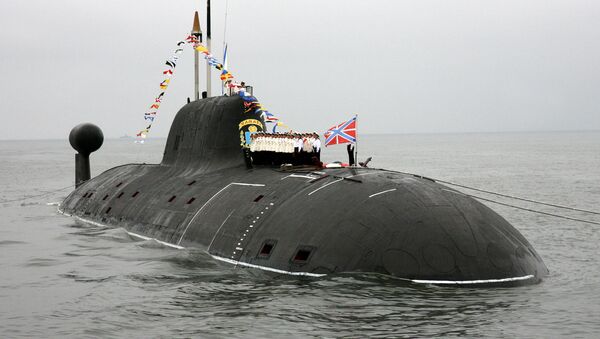In October 2014, the Swedish military sounded the alarm over a suspicious object in the waters off Stockholm’s inner archipelago. Without evidence, this object was declared to be a Russian submarine.
The paranoia spread to the US in October 2015, as Pentagon officials expressed concern over the possibility of Russian submarines severing underwater data cables in the Atlantic.
"The United States increasingly resembles Sweden, often believing that Russian submarines are present in their territorial waters," Vladimir Komoyedov, head of the Russian State Duma’s defense committee, told RIA Novosti at the time. "Although these data cables exist, we will definitely not damage them."
Now the Connecticut Senator and Democrat, Chris Murphy, is reigniting the tired fearmongering technique.
"No one is suggesting that [Russian President Vladimir] Putin is contemplating a nuclear launch against a NATO country, but it’s not clear how tethered to reality Putin is," the senator remarked to reporters on Monday.
"And it should make us nervous that many of his submarines are starting to get dangerously close to the US and our allies."
Murphy did not provide evidence for his claims.
"Russian submarines have been pushing out to the very precipice of NATO-ally waters," he said. "We have Russian boats coming closer to the US and to our European partner ports than ever before, in immensely provocative ways – in ways that were rare even during the days of the Cold War."
The Senator made his comments as part of a push to increase funding to the US Navy to reinvigorate its submarine program. In an effort to replace the Navy’s aging Ohio-class ballistic missile submarines, it plans to cut funding to modern attack subs as well.
Murphy, a Senator from a state with a major submarine base in the town of Groton, seeks to ensure that funding is provided for both.
"We’ve got to find a way to do both," he said. "If you look at the pace of Russian and Chinese building programs, we can’t afford to drop Virginia-class production back to one for more than a year."
While the US uses scare tactics to drum up funding, NATO and the US inch closer to the Russian border.
"I expect the defense ministers to agree to enhance our forward presence in the eastern part of our alliance," NATO Secretary General Jens Stoltenberg said in February. "This will send a clear signal. NATO will respond as one to any aggression against any ally."





